ZOO POO AND EVERYTHING ELSE
Lots of animals and trees at a zoo. They all produce tonnes of poo and other organic material. What happens to it at the Perth Zoo?
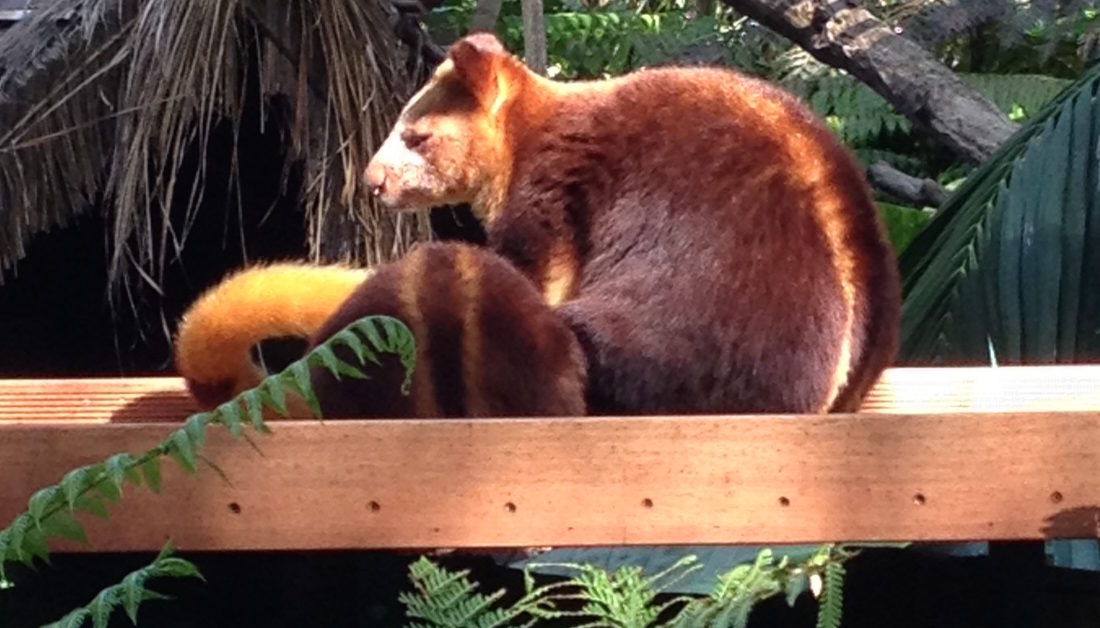
Posted on
13 October 2016Author
Peg DaviesThe zoos all around the world create lots and lots of poo and other organic material every day. The Perth Zoo is located in the inner suburbs on 19 hectares and the vegetation alone generates one metric tonne of green waste/day.
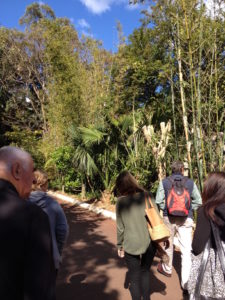
Trees and bushes constantly being pruned
There are 1200 animals at Perth Zoo and the 3 elephants alone produce 60-80 kgm of poo and wee/day.
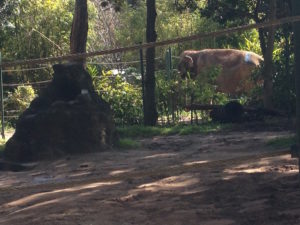
70% of the waste the Zoo produces is organic and needs to be disposed off site. Previously all the organic material went to landfill. In 2013 they had a trial on site to process the material, resulting a large invasion of argentine ants. Combined with the odour and space issues surrounding large scale processing, the Zoo looked for off site solutions.
The arrangement with Nutra- Rich began in 2014 whereby they take all the organic material from the zoo, transport it to Brookton, mulch, mix and compost to Australian standards for mulch and compost, AS4454 and return to the zoo.
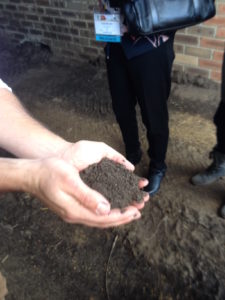
a good wad of elephant poo ready for processing
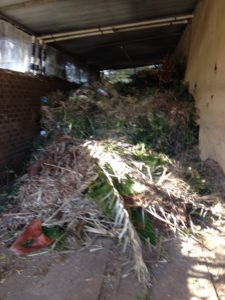
prunings stored ready to go to Brookton
They started with the big animal wastes from giraffes, elephants, rhino etc and now take all the animal waste and prunings from vegetation. The cages are raked out to gather droppings and fallen leaf vegetaion. The processed material is returned to the zoo and what is not used at the Zoo is bagged and marketed as Creature Compost zoo poo. The product is entirely of material sourced from the zoo.
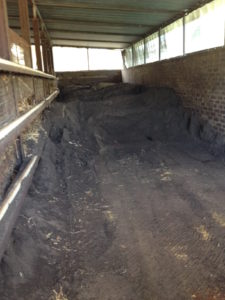
returned for use at the zoo.
While the arrangement with Nutra Rich gives the required result of good usable compost, the travel distance and the requirement in the contract to keep it completely ‘zoo sourced’ makes for an expensive result. Nutra Rich could expand the market possibilities if they could add other materials and reduce processing costs. But because they need to keep it separated, the final product is ‘pure zoo’ it will not necessarily be a superior fertiliser than a mixed material.
So is it worth it? The difficulty the Zoo has to market Creature Compost, may not justify extending the contract under the current conditions. The transport off site of such a large quantity of material would still be necessary unless alternative processing close by was found.
While these comments are not to discuss the issues around keeping animals in zoos, from a waste perspective, any future enterprise producing so much organic material should be located where this material can be processed close by. Let’s change the wording and call it ‘resource’ not ‘waste’ and our perspective might get hopeful as the Perth Zoo has done. However keeping our solutions, ‘sustainable’ ie economically viable too.
What about the organic waste we produce at home and work? Do we process it all? What about all our animal waste, where does that go?
Comments please.


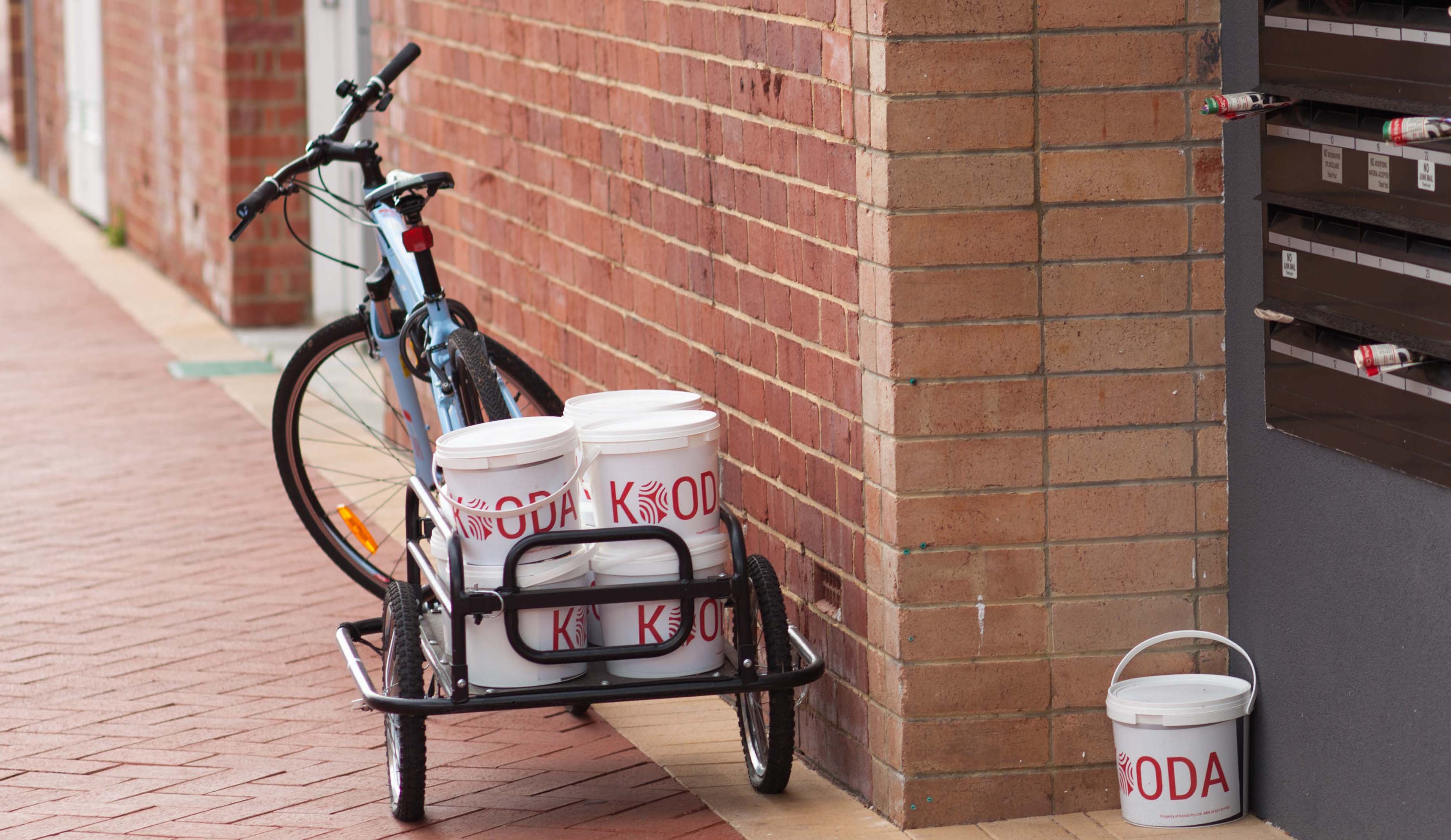
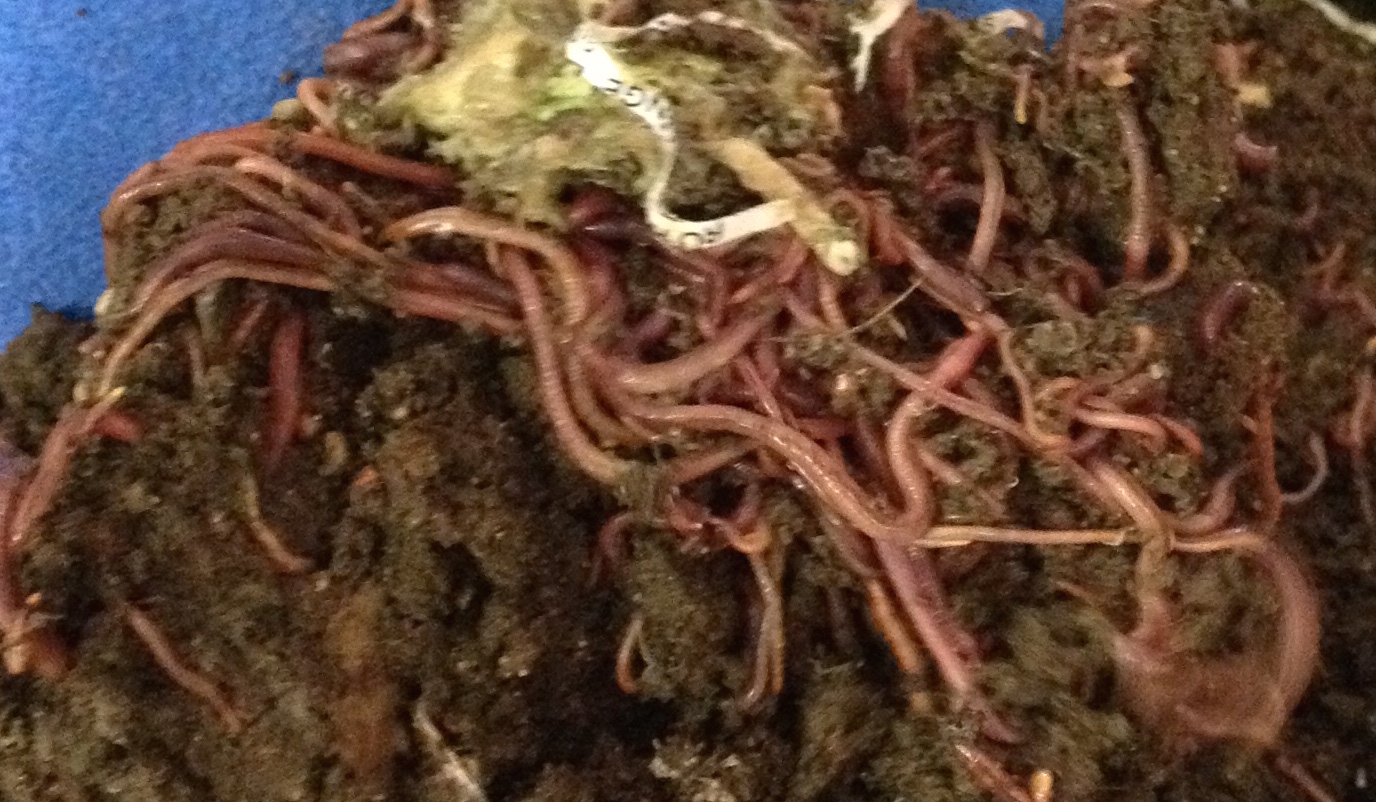
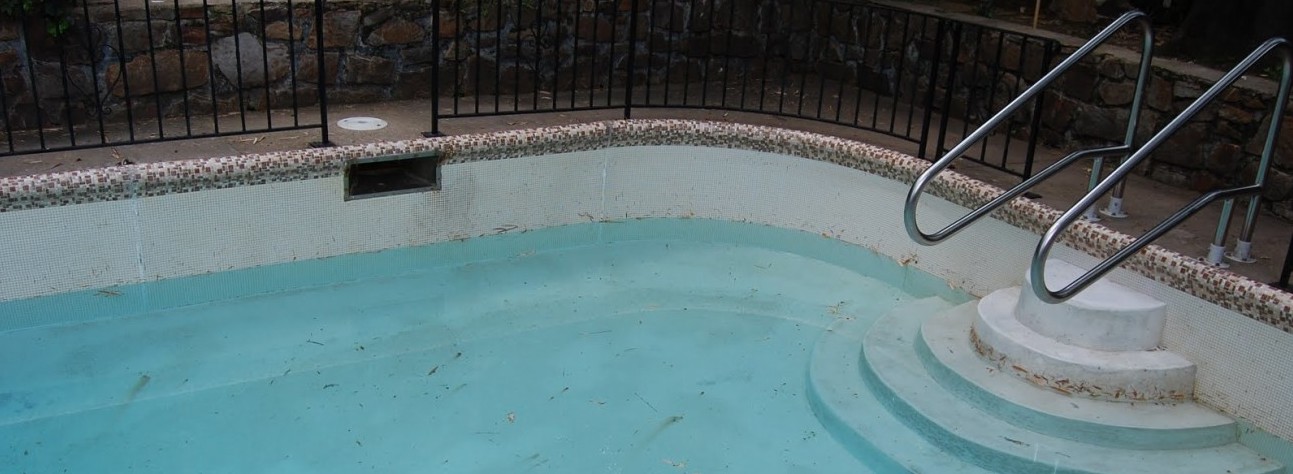
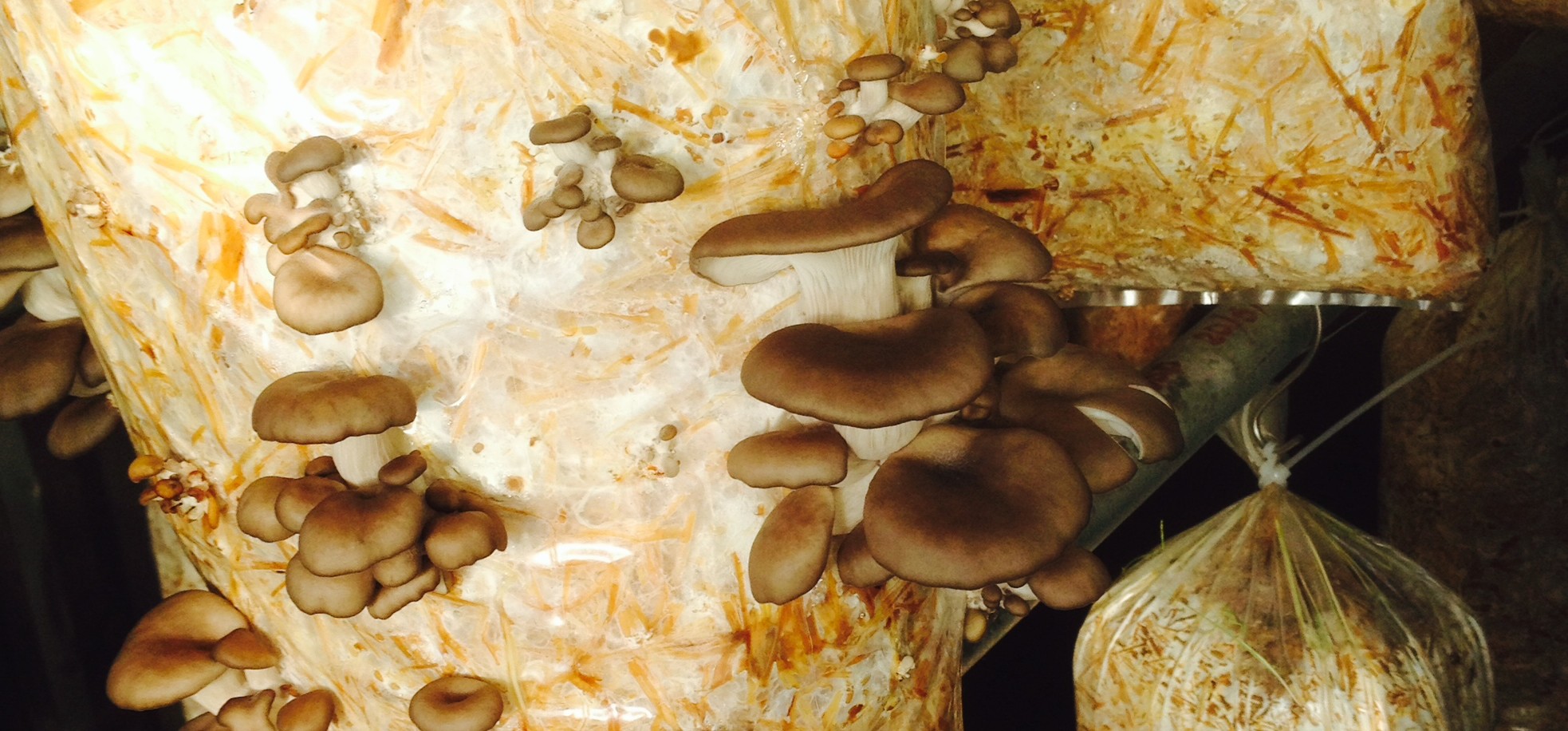
Great article Peg! I’m reading the Humanure Handbook at the moment and it’s such an inspiring read – there is so much more stuff we could be composting!
Yes just look around 360 degrees and we usually don’t even have to leave our street or house.